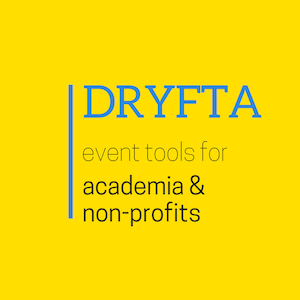Home > Blog > All in one Event Management Software > Your Guide to the Types of Events
Events are a great way to get your name out there, build community, and attract new customers. Whether you’re hosting an event for a company or organization and want to maximize the benefits of this opportunity, or planning your own personal event that will be attended by family and friends, it’s important to know what types of events are available so you can choose the best one for your needs. Let’s take a look at some common types of events:
Understanding the major types of events
- Recurring events – These are usually held for a period of time and then stopped, but they can be repeated at any time. For example, if a business is promoting their new product every week, this could be considered recurring (unless they stop). If you have an annual conference or event, then that would also be considered a recurring event.
- Non-recurring events – These are one-off events that don’t happen again once they’ve been done the first time or there isn’t another similar event planned in the future. Examples include: product launches and conferences/seminars/workshops.
- Corporate events – These are usually organized by a company for its employees or clients. Examples include: product launches, conferences/seminars/workshops, fairs/exhibitions, concerts/shows, product presentations, grand openings & ribbon cuttings and receptions/parties (informal gatherings).
- Social events – These are hosted by individuals or groups of people in order to socialize with others. You can find examples of fundraisers, donations/fundraisers, charity work and galas (formal gatherings).
1. Trade shows
Trade shows are large gatherings of people who come to see a variety of products and services. These events are also known as expos, which is short for exhibition. Here is an example: if you were attending a conference on business management, it’s likely that there would be many different booths set up by companies that sell office supplies and technology items.
2. Concerts
Concerts are a type of event that involve music, and they can be used for many different purposes. If you’re hosting a concert, chances are you’re hoping it will bring people together to enjoy the live experience. Concerts can also be used to promote a product or service. For example, let’s say you own a pizza parlor that’s been open for years but still isn’t very well known in your town. A free outdoor concert with some great local bands playing would be a great way to get people talking about your restaurant!
If raising money is part of your goals but ticket sales aren’t where they need to be, consider holding an all-day concert as opposed to just one night of shows. The longer event gives more people time to purchase tickets before asking for donations or selling merchandise—and if people come out early enough (preferably on both nights), there might even be room left over after all the extra expenses have been paid off with ticket sales alone!
3. Conferences and conventions
Conferences and conventions are events that bring people together to share ideas and knowledge. They can be anything from a small group of people meeting over dinner to a large gathering of thousands, depending on the type of event you’re planning.
Here are some examples of conferences and conventions:
- A small-business owners’ convention for entrepreneurs looking for tips on how to improve their businesses.
- A medical conference where doctors from around the country gather to discuss new treatments for diseases like cancer or diabetes.
- An annual gathering of writers who meet to share their writing processes with one another and learn from each other’s work practices (for example, making time for exercise or meditation).
Before you can plan a big event like these three examples above, it’s important that you know what kind of venue will best suit your purposes—and this will depend largely on whether or not there are any requirements set forth by your city/state’s health department regarding size limitations in order not only protect against overcrowding but also provide enough space so guests won’t feel claustrophobic while walking around inside!
For example: If someone has limited mobility issues then having too many people crammed into one room could make things difficult since there wouldn’t be enough space between tables where everyone could sit comfortably without bumping into each other constantly.
4. Fundraisers
Fundraisers are a great way to raise money for a cause. Whether it’s benefiting an animal shelter, supporting a political campaign, or helping out a local school, fundraisers can be held at any time of the year and in any location. They can also be held at any time of day!
If you’re looking to host an event that will benefit your favorite cause but want something different than just selling cookies or wrapping paper (because let’s face it: we’ve all done those things), consider hosting one of these types of events instead.
5. Sports events
Sports events can be organized by a local or national sports association. They can be used to promote the sport, to raise funds for the sport and its development, or promote it to the general public.
Sports events are very popular in many countries around the world including running, jumping over obstacles on a track field or swimming laps while staying inside designated lanes.
6. Fashion events
Fashion shows are events that showcase the latest designs from a designer or brand. They’re used by designers to get feedback on their work and promote new products. Fashion shows can be held anywhere: in small venues, large convention halls, or even outdoor locations like parks and beaches. Some of the most famous fashion shows include New York Fashion Week (NYFW) and Paris Fashion Week (PFW).
7. Corporate events
A corporate event is a special event for a business. It can be used to promote a product or service, celebrate a special occasion, thank employees and customers, and recruit new employees.
Examples of types of corporate events include:
- Sales kickoff meetings
- Shareholder meetings
- Networking events
- Corporate parties
8. Fairs, festivals, and parades
If you’re planning on attending a fair, festival, or parade, it’s important to know just what that means. These types of events are often confused with one another and there are many different types of each event. Let’s take a look at what makes them different from one another and how they can be used.
A fair is an event where participants gather to showcase their skills in some way – whether it’s through food preparation or showing off their animals. Fairs usually have some sort of competition involved; this is where the word “fair” comes from since fairs used to be called “fairs.” These days you might see people selling their wares at a fair as well as their crafts and food items which makes them more like festivals than fairs.
Festival: A festival is similar to a trade show in that both focus on selling products but is much more consumer-focused than trade shows (which tend to be more focused on professional buyers). Festivals often take place outdoors so consumers can experience products firsthand rather than just reading about them online or seeing pictures online before making purchases.
Parade: A parade involves lots of entertainment along with floats that display various themes such as patriotism for national holidays like Memorial Day; Christmas holidays like Easter; Halloween, international themes such as Cinco de Mayo celebrations etc
Final bits
Once you’ve figured out what kind of event you want to host, the next step is deciding how to make it awesome. You’ll want to start by creating a plan that includes everything from who your guests are going to be (and how much space they will need), what kind of food or drinks you’ll have available at each station, what kind of entertainment will keep everyone engaged throughout the evening (or day!), and so on. Then it’s time for some fun!






